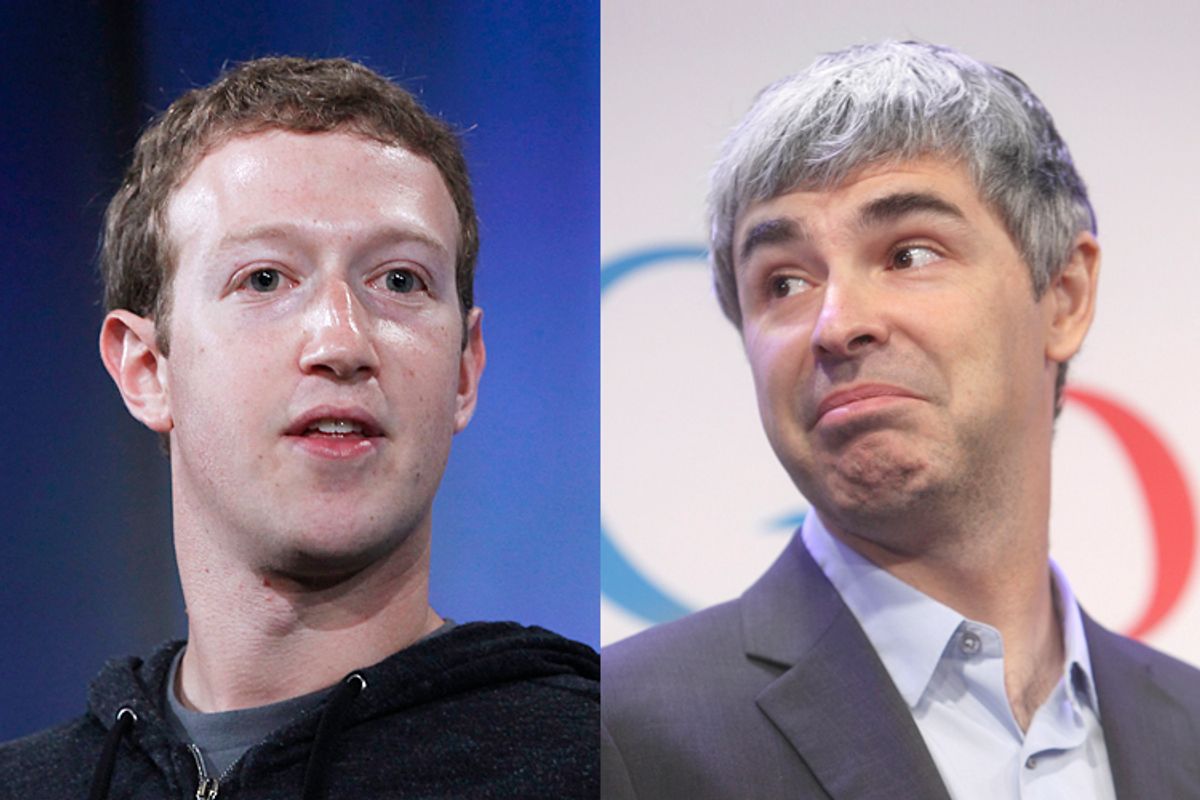If the maxim "where California leads, the nation follows" is still true, we shouldn't be expecting any positive movement on tougher privacy laws at the federal level any time soon. The L.A. Times reported on Friday that "a powerful coalition of technology companies and business lobbies" -- including Facebook and Google -- quashed a digital privacy bill that would have made California "the first state to take direct aim at an online industry that stockpiles and trades in a wide range of personal data about nearly every adult in the United States."
At this stage of the game we probably don't need any more reminders that the last thing online services want to see happen is for their users to gain any meaningful control about how their personal information is exploited. Or, for that matter, about how lobbying money routinely skews public policy against the public interest. The new money of Silicon Valley is just the same as the old money of Wall Street or the fossil fuel industry.
Or is it? The L.A. Times' excellent story includes an intriguing quote from Dan Schnur, a longtime Republican political strategist and campaign consultant, arguing that it's harder to pass laws against the interests of Silicon Valley companies, because people just love 'em so darn much.
"It's not just that Silicon Valley has a lot of money and a lot of lobbyists, but they wear a halo too," Schnur said. "Most voters tend to think of technology companies in an entirely different context than most other businesses.
"It's not that difficult to pass a bill to make life hard on oil companies, but when you take on Apple or Google, you're running a bigger risk. Not only do voters enjoy their products but they have an intuitive sense that Silicon Valley is a critical component of the state's economy."
It's not that difficult to pass a bill to make life hard on oil companies?! Thank you, Dan, for my first belly laugh of the week. As we have seen at the federal level, special interest lobbying has made it practically impossible to pass any meaningful laws cracking down on oil companies. California's landmark global warming laws certainly did not pass with ease, and their implementation has been fought ferociously at every juncture, via both the courts and the state's public referendum initiative process.
Personally, I hate government by initiative process, but I'd be fascinated to see what might happen if California voters ever got a chance to weigh in on digital privacy via the ballot. Way back in 1972, voters passed Proposition 11, which added a right to privacy to the state constitution. Virtually every survey or poll I've seen in recent years indicates Americans have strongly negative feelings about online tracking and the current state of digital privacy. I'm betting that they would carry those views right into the ballot box.
The lack of progress on privacy in Sacramento has nothing to do with any "halo" effect, and everything to do with Silicon Valley's lobbying success at circumventing the will of the voters.



Shares